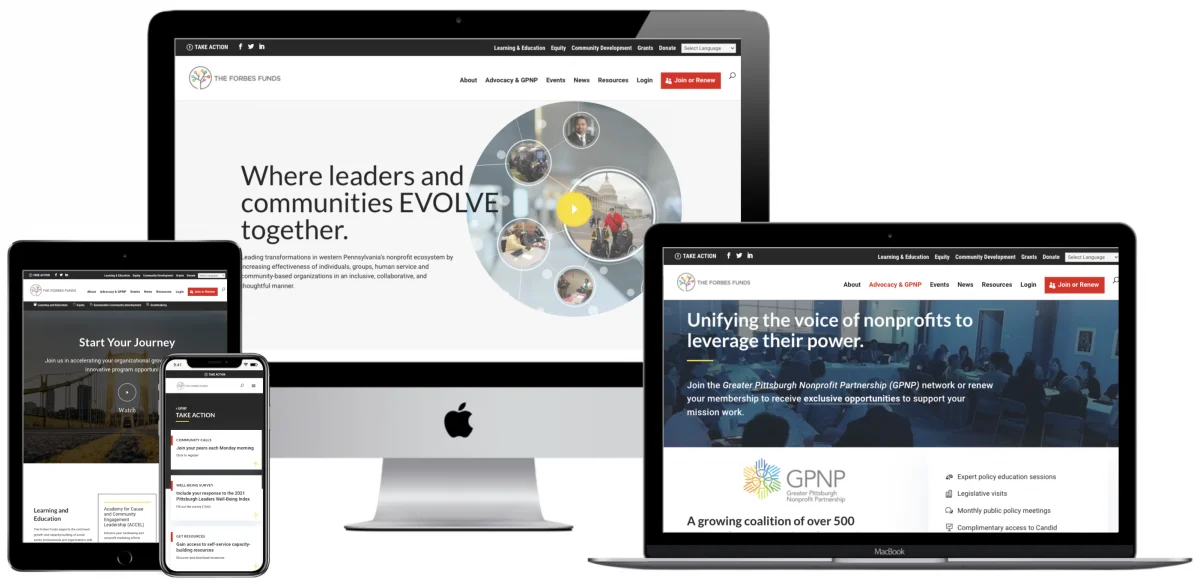If you work at a nonprofit or any kind of purpose-driven organization and have any kind of interaction with the organization’s website, you may have been asked about “SEO”.
“What is SEO?” you may have asked, not knowing what the letters stand for, or what it really means, or why you should care about it. Or you may have a vague sense of what SEO is all about, but feel that it is a more traditional marketing tactic and doesn’t apply to your purpose-driven organization.
The truth of the matter is that SEO is equally- if not more- important for purpose-driven organizations than it is for traditional big businesses making use of big marketing budgets to carry out traditional digital marketing techniques. But before we get into the why, let’s get into the what.
What is SEO?
SEO, or Search Engine Optimization, is all about increasing the quality and quantity of traffic to your website through organic search engine results. While many businesses use paid search engine marketing as a part of their overall marketing strategy, SEO is all about getting traffic organically- meaning you don’t have to pay for it (although it does require an investment of time and money to develop and execute on an SEO strategy).
(For a more in-depth guide to SEO, check out Moz’s Beginner’s Guide to SEO).
Why does SEO matter for nonprofits?
All nonprofits are aiming to maximize impact, but a key step to maximizing impact is maximizing exposure. Getting on top of SEO is crucial for helping people who may be interested in supporting your mission actually find your organization online, especially because organic google searches- simply typing an inquiry into Google- generates 51% of web traffic.
For nonprofits, getting people on the site is one of the biggest hurdles. From there, it is up to the organization to provide a website experience that is engaging and compelling, and that makes it easy for website visitors to take action. Ranking high organically will drive high-quality traffic to the organization’s site, while a strong user experience, high-quality content, and effective calls-to-action will drive engagement and donations.
In addition, an investment in SEO is an investment that works for your organization and provides long-term value. For nonprofit organizations that are typically already operating on limited funds, that is invaluable. Although SEO will require updates from time to time to stay fresh, properly implementing SEO best practices is like installing a machine that can handle background tasks to free up the capacity of staff members to engage in the deeper, more meaningful work. The best part is that implementing SEO best practices does not require hiring an expert- with an initial investment of time to learn about SEO, anybody can do the work.
So what are these best practices for SEO?
- Pay attention to keywords. First, familiarize yourself with the concept of keywords, and then take the time to perform keyword research. Once you’ve established some keywords, let the keywords inform your content creation strategy. Be sure to optimize your content including keywords in content titles, headlines, and copy.
- Follow an on-page SEO checklist. Beyond keywords, there are many areas of a web page that can be optimized, such as meta descriptions, alt tags, and title tags. Develop a checklist that can be used when publishing content, or make use of an existing checklist.
- Take advantage of links. Linking to relevant sites outside of your organization (called backlinking) can be a great SEO boost. For nonprofits in particular, including backlinks to partner organizations’ websites and having those organizations include backlinks to your website can be a quick and easy way to improve SEO standing while supporting other impactful organizations.
These are just a few of the best practices that nonprofit organizations can undertake to improve SEO standing. It is important to keep in mind that while working on SEO can work wonders for driving traffic to the website, SEO strategy should not exist in a vacuum. In more simple terms, don’t do SEO just for the sake of doing SEO. An SEO strategy should be a part of an overall content strategy that aims to bring meaningful content to constituents, build a community around your mission, drive the donation of time and resources, and ultimately boost impact.
This post is an ongoing series of purpose-driven marketing tips and best practices designed to give your organization a boost that it needs.
Learn more at our SEO Growth Library — which features SEO guides and more best practices which you can apply to your organization today.

Leah Bury is a writer and passionate about various social justice issues, to say the very least. She’s worked in a variety of organizations, from an education technology startup to a nonprofit venture philanthropy fund, and has in the past supported Coding For Causes in spreading equity and community education on a City-wide scale. She likes to hike, travel, read, and enjoys music festivals.

